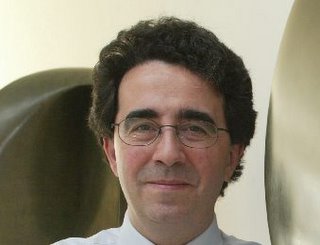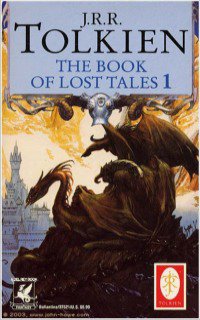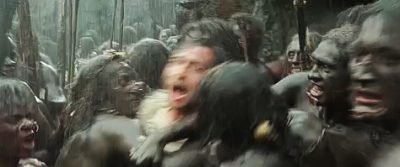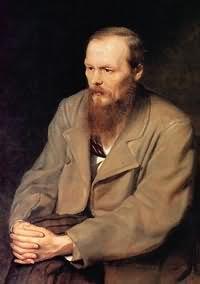
Santiago Calatrava is one of the most important and influential architects alive today. I don't normally follow modern architecture, so I hadn't heard of him until I saw him speak at my sister's graduation from SMU last spring. It was a little hard to follow what he was saying at the time because it was outside in a crowd of people and he has a thick spanish accent, but it is remarkable what he said. I found a copy of the speach online this summer, but it appears to be gone now, I did however find two silmiler speeches he gave,
one was a Commencement Address at SMU in may (windows media video) and
the other is a American Institute of Architects (AIA) Gold Medal Acceptance Speech in February.
In the first one, a 10 minute speech, he spends several minutes exegeting John 1:1:
He begins saying that many books an passages have been very influential on understanding his profession,
"one of them was reading the gosple of John, who started with the words 'in the beginning was the word', 'en arche en o logos'" He then talks about how words are beginnings and how these first words in the new testement are actually the same as the beginning as the words in the old testement, and then even about the how the actual shape of the first letter in greek, epsilon, shows begining.
What is a famous Architect doing at a secular
(accept in name) college spending several minuets talking about John 1?
He is being humble and wise, but to us, who live in a culture where this has been foriegn for so long, it seems odd.
He ended that speech with"
let me understand my profession in this way: heading workers as a worker and through the technique achieve art with the help of God."
Then in the AIA speech, which is similar, but longer, he starts by saying:
"When you get an award like this, you are supposed to make a speech about the future of your profession. But I feel that I am not good at predicting the future. I never thought I would be standing here tonight. I would like to share with you some thoughts about the past and the history of our profession—about its very deep roots. This is perhaps a way for us to reflect on the meaning of the work we do."
Instead of the arragance of the modern and the shock of the new he turns to history, he remembers our fathers, he opens the Bible:
After quoting medieval and renaissance definitions of architecture he says:
"I would like to conclude by reading to you the most ancient definition I have found of the profession of the architect:
'See, I have called by name Bezalel, the son of Uri, the son of Hur, of the tribe of Judah, and I have filled him with the spirit of God, in wisdom, and in understanding, and in knowledge of all workmanship, so that he can make skillful things: working in gold, in silver, and in brass…'
I am sure you all recognize where this comes from. It is the Bible: Exodus, chapter 31. God, the ultimate client, has commissioned Bezalel to design and build the Tabernacle."
I love it, "I'm sure you all recognize where this comes from", you're only a large group of secular, modern architects, why wouldn't you?
"
...The architect Bezalel has wisdom, understanding and knowledge, so that he can work in gold, silver and brass. It is no mistake that the words have this rhythm of three and then three. Long before most people could read the Bible, they learned it by memory, by hearing it spoken. This kind of association—wisdom, understanding, knowledge…gold, silver, brass—was exactly the kind of meaning they received by listening to the Bible."
Wait is that
James Jorden? No. Oh,
Peter Leithart, perhaps? Um, no actually it's
Santiago Calatrava.
He also talks about Bezalel being filled by the Spirit.
Brian Godawa and others have pointed out that Bezalel, an artist, was the first person in the Bible to be filled with the Holy Spirit
(so why do mordern christians hate and suck at making art?)
Back to Calatrava:
"What else do we hear in this text? We hear that God’s spirit has filled Bezalel. This is what we will come across later, with the Greeks, with their idea of “ENTEOS ASMOS” or enthusiasm. Bezalel will be able to go beyond technique to art, because a spirit much greater than his own has filled him. But even so, we also hear, in the Bible, that “man is the measure of all things.” God calls Bezalel by name. This tremendous work, which calls for a spirit that seems beyond human capability, must nevertheless be carried out by someone with a name—an individual—someone with human limits."
And then later he closes with:
"My fellow architects—my dear colleagues, who have moved me so profoundly with the award of this Gold Medal—I do not know the future of our profession. But we know our past, to which we must be responsible. Our past tells us that we are human beings—fallible and limited—who do technical work with material things. Our past also tells us that somehow, through an agency we do not understand, we can sometimes create art. When that happens, we are no longer merely workers. We became “ARCHITEKTON” - the first among workers."
How odd and out of place,
and how apt and needed in our culture!
Praise God, the maker of all things, including those who make!
I look forward to seeing how his design for the new World Trade Center turns out.

 *
*




